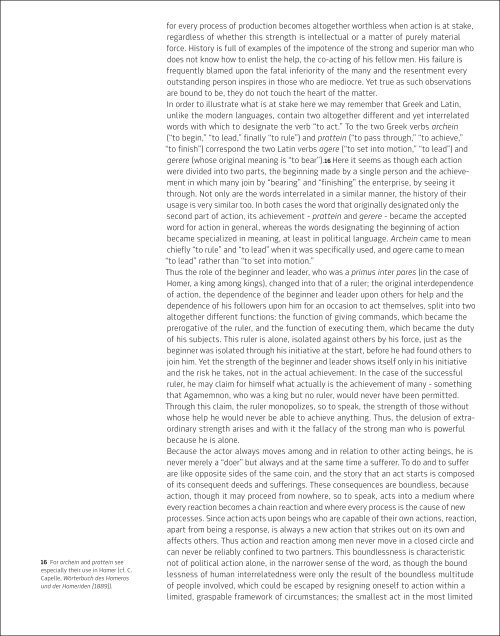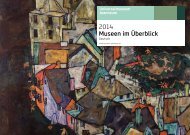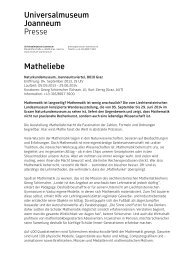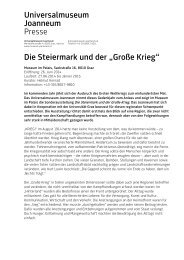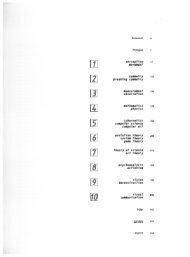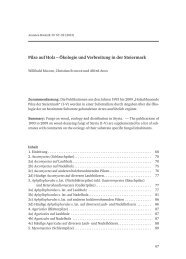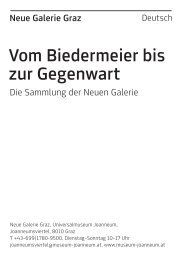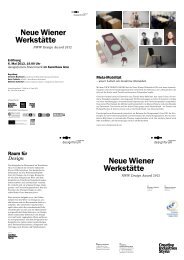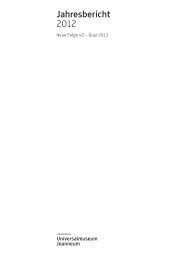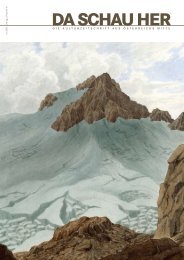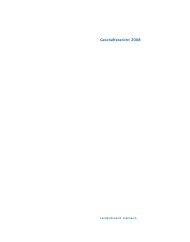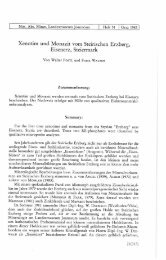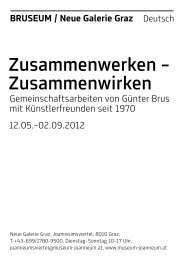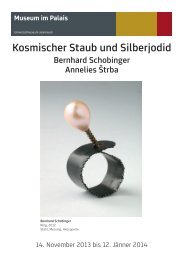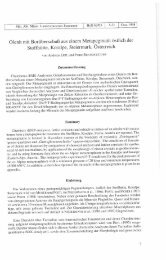Human Condition - Universalmuseum Joanneum
Human Condition - Universalmuseum Joanneum
Human Condition - Universalmuseum Joanneum
Sie wollen auch ein ePaper? Erhöhen Sie die Reichweite Ihrer Titel.
YUMPU macht aus Druck-PDFs automatisch weboptimierte ePaper, die Google liebt.
16 For archein and prattein see<br />
especially their use in Homer (cf. C.<br />
Capelle, Wörterbuch des Homeros<br />
und der Homeriden [1889]).<br />
for every process of production becomes altogether worthless when action is at stake,<br />
regardless of whether this strength is intellec tual or a matter of purely material<br />
force. History is fuIl of examples of the impotence of the strong and superior man who<br />
does not know how to enlist the help, the co-acting of his fellow men. His failure is<br />
frequently blamed upon the fatal inferiority of the many and the resentment every<br />
outstanding person inspires in those who are mediocre. Yet true as such observations<br />
are bound to be, they do not touch the heart of the matter.<br />
In order to ilIustrate what is at stake here we may remember that Greek and Latin,<br />
unlike the modern languages, contain two altogether different and yet interrelated<br />
words with which to des ignate the verb “to act.” To the two Greek verbs archein<br />
(“to begin,” “to lead,” finaIly “to rule”) and prattein (“to pass through,” “to achieve,”<br />
“to finish”) correspond the two Latin verbs agere (“to set into motion,” “to lead”) and<br />
gerere (whose original meaning is “to bear”).16 Here it seems as though each action<br />
were divided into two parts, the beginning made by a single person and the achievement<br />
in which many join by “bear ing” and “finishing” the enterprise, by seeing it<br />
through. Not only are the words interrelated in a similar manner, the history of their<br />
usage is very similar too. In both cases the word that originally designated only the<br />
second part of action, its achieve ment - prattein and gerere - became the accepted<br />
word for action in general, whereas the words designating the beginning of action<br />
became specialized in meaning, at least in political language. Archein came to mean<br />
chiefly “to rule” and “to lead” when it was specifically used, and agere came to mean<br />
“to lead” rather than “to set into motion.”<br />
Thus the role of the beginner and leader, who was a primus inter pares (in the case of<br />
Homer, a king among kings), changed into that of a ruler; the original interdependence<br />
of action, the dependence of the beginner and leader upon others for help and the<br />
dependence of his followers upon him for an occasion to act themselves, split into two<br />
altogether different functions: the func tion of giving commands, which became the<br />
prerogative of the ruler, and the function of executing them, which became the duty<br />
of his subjects. This ruler is alone, isolated against others by his force, just as the<br />
beginner was isolated through his initiative at the start, before he had found others to<br />
join him. Yet the strength of the beginner and leader shows itself only in his initiative<br />
and the risk he takes, not in the actual achievement. In the case of the successful<br />
ruler, he may claim for himself what actually is the achievement of many - something<br />
that Agamemnon, who was a king but no ruler, would never have been permitted.<br />
Through this claim, the ruler monopolizes, so to speak, the strength of those without<br />
whose help he would never be able to achieve anything. Thus, the delusion of extraordinary<br />
strength arises and with it the fallacy of the strong man who is powerful<br />
because he is alone.<br />
Because the actor always moves among and in relation to other acting beings, he is<br />
never merely a “doer” but always and at the same time a sufferer. To do and to suffer<br />
are like opposite sides of the same coin, and the story that an act starts is composed<br />
of its consequent deeds and sufferings. These consequences are boundless, because<br />
action, though it may proceed from nowhere, so to speak, acts into a medium where<br />
every reaction becomes a chain reaction and where every process is the cause of new<br />
proc esses. Since action acts upon beings who are capable of their own actions, reaction,<br />
apart from being a response, is always a new action that strikes out on its own and<br />
affects others. Thus action and reaction among men never move in a closed circle and<br />
can never be reliably confined to two partners. This boundlessness is characteristic<br />
not of political action alone, in the narrower sense of the word, as though the bound<br />
lessness of human interrelated ness were only the result of the boundless multitude<br />
of people involved, which could be escaped by resigning oneself to action within a<br />
limited, graspable framework of circumstances; the smallest act in the most limited


